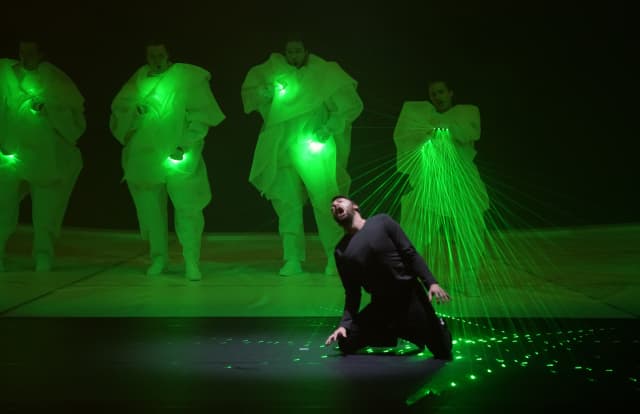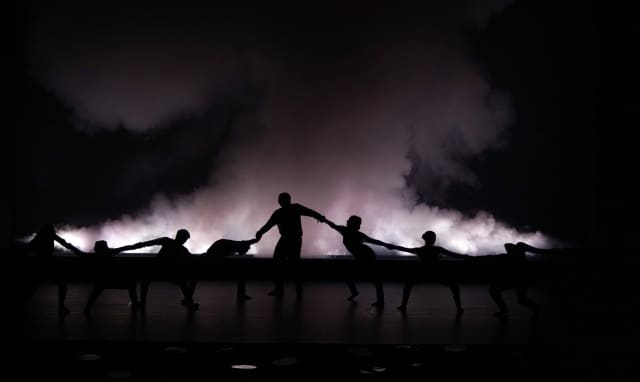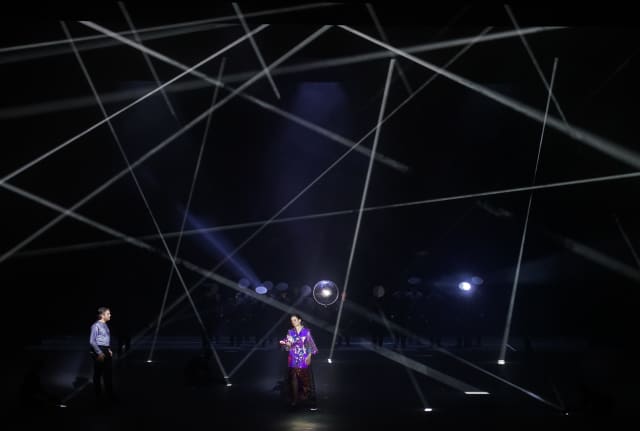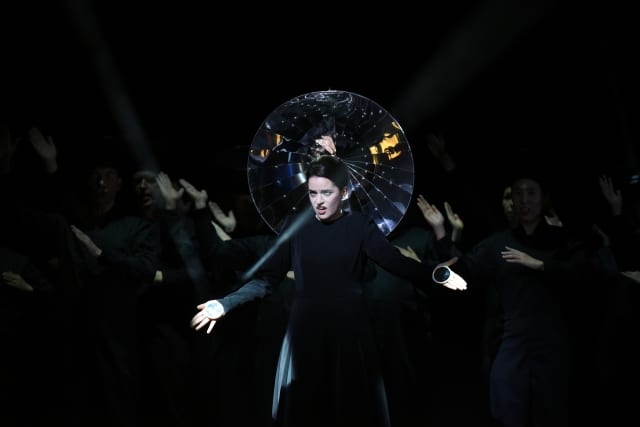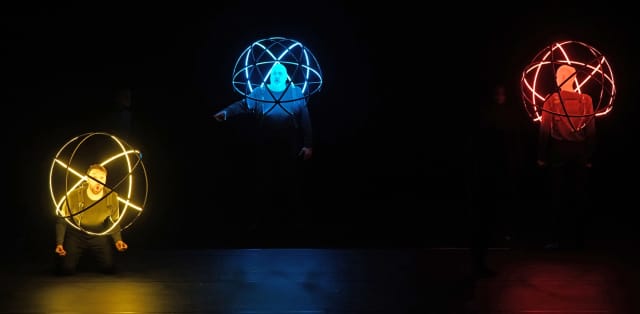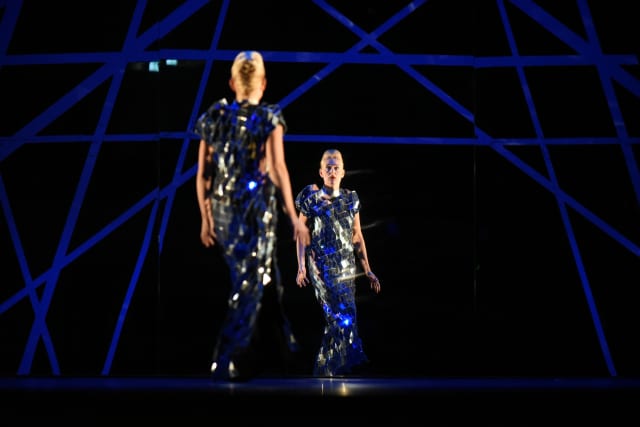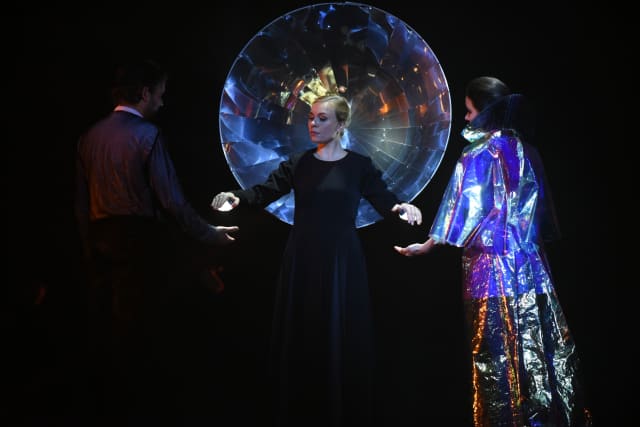Hippolyte et Aricie, Jean-Philippe Rameau’s opera of 1733, is based on Racine’s telling of the Phaedra myth. In this complex love story, protagonists cross back and forth between the human and divine realms but also struggle with the desire to cross moral boundaries. Working closely with conductor Sir Simon Rattle and director-choreographer Aletta Collins on a new production for Staatsoper Unter den Linden Berlin, Eliasson set out to make the Baroque work relevant for contemporary audiences.
Eliasson’s hallmark explorations of natural phenomena such as weather, atmosphere, and light resonate with the work’s mythical settings, which include forests sacred to the goddess Diana, Pluto’s underworld, and Neptune’s ocean realm. Building on his longstanding interests in colour, kaleidoscopic effects, and light and shadow, the production weaves dense webs of radiance, haze, and reflections. Dancers, chorus, and principal singers move within these webs to become what Eliasson calls ‘instruments of light’, often wearing mirrors or lasers to direct beams or interrupting those beams with their shadows. Onstage and off, bodies carry an architectural dimension, interacting for example with the rippling wave patterns generated by water, or emerging from backgrounds of thick fog to mould planes of light, or seeing their own reflections in a vast mirror placed before the audience.
In approaching the production design, Eliasson drew inspiration from his experiences in Berlin in the 1990s in the arts and club scenes, to create an opera with a dreamlike blurring of the boundaries between movement, time, space, ephemera, narrative, and music.
| Artwork details | |
Title |
Hippolyte et Aricie: Lyric tragedy in five acts (1733/1757) |
Year |
2018 |
Materials |
Set, light and costume design for opera by Jean-Philippe Rameau |
| Related | |
| Artworks | |

